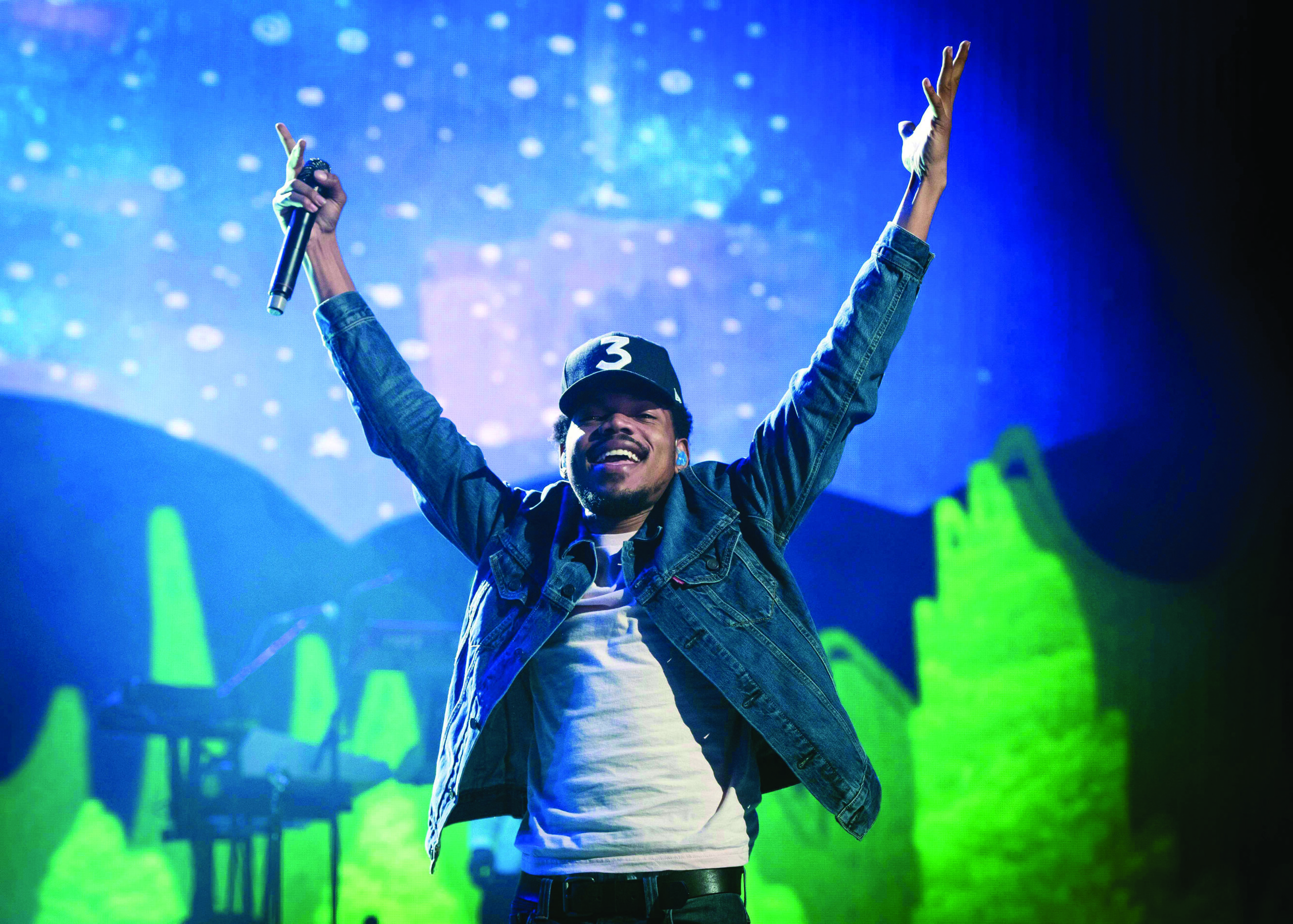On a stadium stage before me stands a man surrounded by smoke machines, under glittering lights. “Who wants to go to heaven?” he asks, and I leap to my feet, cheering, together with thousands of chanting and clapping fans.
It’s an early summer evening in Montreal, and we are gathered here to share the joy of Chance the Rapper as he praises God with his brilliant, quick rhymes about heaven and angels and blessings. “Are you ready for your miracle?” he raps. And I think he means it.
It feels like a megachurch. It wasn’t cheap to get a ticket, but once you’re past the metal detectors, you’re free to listen to this concert as a rap show, a sermon, a celebration of God or just as a party full of the greatest hip hop coming out of Chicago today.
Of all the popular music genres, none is more explicitly about God than hip hop. Faith communities could benefit from paying attention. As churches ask where the young people are, the reality is that many of us are finding spiritual guidance in rap. Through their music, rappers are sharing what God means to them, while also addressing issues like racism and police brutality. Liberal Christians and rap fans share a passion for human rights, inclusion, telling one’s truth, expressing individuality and finding community.
When I formally joined my church this year, I was asked to share some thoughts from a writer who has influenced my spiritual journey. I chose Shadrach (Shad) Kabango, a Canadian rapper and the former host of CBC Radio’s q, because he wrote my favourite words ever about God. In his song Compromise, reflecting on having a pantry full of food while other people are starving, he asks God, “Why you letting this happen?” God answers, “Son, I’m asking you the same thing.” This philosophy, that it is our job to do God’s work on Earth, is why I’m a member of a church at all.
Shad often invokes his faith in his lyrics. The song A Good Name, for example, tells the story of his biblical namesake, who was “saved by a faith stronger than flames.” In the book of Daniel, Shadrach and his Hebrew companions are thrown into a furnace by the king of Babylon after refusing to worship his image, but God protects them from the blaze. Shad raps, “If I’m half as brave then I’ll honour my name.” For many youth, Shad’s verses are an accessible introduction to scripture. Kids are listening to his songs for hundreds of hours more than they would ever listen to a sermon.
More on Broadview: Polaris prizewinner on reviving language through music
Released in October, Shad’s new album, A Short Story About a War, also explores Christian themes. His lead single, The Fool Pt 1 (Get It Got It Good), proclaims Black joy, Black survival and a faith in God. Shad raps a question: “Lord what do you make of this way that I’m walking? / This path that I’m on, you made a way for me.” He closes the song by describing how Jesus shared fellowship with Judas, reminding us that we need love on Earth, as it is in heaven.
Kanye West, arguably the greatest living rapper, became famous with a diamond-studded golden pendant of Jesus’ face around his neck. It’s been 14 years since West released his hugely popular anthem Jesus Walks, confessing to the listener, “I want to talk to God, but I’m afraid because we ain’t spoke in so long.” By 2013, he’d adopted the nickname “Yeezus,” describing himself in his lyrics as both a God and a man of God. West’s wife, the reality TV star Kim Kardashian, has said that West believes his lyrics come from God, with the rapper acting as a vessel.
Many who never listen to his music know of West more through his controversial political actions, from declaring after hurricane Katrina that then U.S. president George Bush “doesn’t care about Black people,” to wearing a Make America Great Again hat and visiting President Donald Trump in the White House. But on his recent Kids See Ghosts release with Kid Cudi, West reminds us that while he’s imperfect, he’s still a man of faith, rapping, “Got a Bible by my bed, oh yes, I’m very Christian / Constantly repenting, ’cause, yes, I never listen.”
Canadian MC Silk “Eternia” Kaya doesn’t identify as a Christian rapper, but she is a rapper who is Christian, and her lyrics are frequently direct addresses to God, expressing her gratitude, struggles and questions. On her 2005 song Evidence, she muses about West’s Jesus Walks being played in nightclubs — “Kids getting blessed by the bar / What’s that, a baptism?” — and calls it an era of “the new religion.”
Her words underscore how hip-hop artists are bringing conversations about God into secular spaces. When Chance performed his song Blessings on Saturday Night Live last year, he closed the show by shouting, “I serve an awesome God!” His open worship, even at 1 a.m. on a comedy program, exemplifies the message of his lyrics. He raps, “I speak to God in public / He keeps my rhymes in couplets.” Chance is never shy about glorifying his God.
It’s true that sometimes I’m late to church on Sunday because I was at a rap show Saturday night, but sometimes I also feel like my church is late to rap. I view rappers as some of the most public, vocal people of faith today, praising God while wrestling with questions of social justice and equality.
My vision for a spirituality that is relevant and accessible to youth includes creating spaces where hip hop exists in addition to church, alongside church, during church — and maybe even instead of church some weekends.
For more of Broadview’s award-winning content, subscribe to the magazine today.















